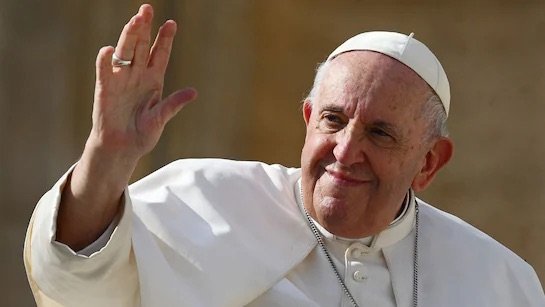VATICAN CITY — With the passing of Pope Francis on Monday, the global Catholic community enters a solemn yet pivotal phase: the selection of a new spiritual leader. The process, steeped in centuries-old tradition, now shifts to the College of Cardinals, the Church’s highest-ranking officials, who will gather behind closed doors in the Vatican to elect the next pope.
This secretive gathering, known as the papal conclave, places 138 cardinal electors—those under the age of 80—under oath and quite literally under lock and key inside the Sistine Chapel until a decision is reached.
Among those eligible to vote are four Canadian cardinals, all of whom are technically eligible to become the next pope. However, scholars and Vatican watchers caution that a Canadian pontiff remains a long shot.
“It’s very unlikely,” said Emma Anderson, professor of religious studies at the University of Ottawa. “Canada simply doesn’t carry the cardinal weight necessary to make that a realistic outcome.”
The Canadian Candidates
Canada has five cardinals in total, but only four are voting members of the conclave:
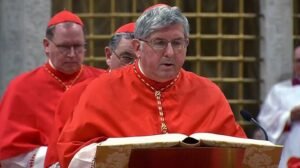
-
Cardinal Thomas Collins – A veteran figure in Canada’s Catholic hierarchy, Collins, 78, is the archbishop emeritus of Toronto. Elevated to cardinal by Pope Benedict XVI in 2012, he has long served in key leadership roles, including in Alberta and Ontario.
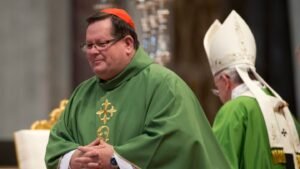
-
Cardinal Gérald Lacroix – The 67-year-old Archbishop of Quebec has been a central figure in the Canadian church since 2011. Although once considered a possible contender for the papacy, Lacroix has faced past allegations of sexual misconduct, which he has firmly denied. A Vatican investigation cleared him of wrongdoing.
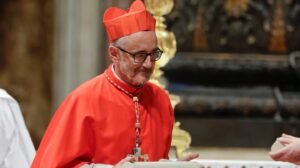
-
Cardinal Michael Czerny – Born in what is now the Czech Republic and raised in Montreal, Czerny, 78, is a Jesuit priest and human rights advocate who has served globally. Known for his commitment to social justice, he was made cardinal by Francis in 2019.
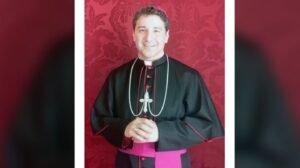
-
Cardinal Francis Leo – The youngest of the group at 53, Leo was appointed Archbishop of Toronto in 2023 and elevated to cardinal in late 2024. Though widely respected, experts suggest his recent entry into the upper echelons of Church leadership and relatively young age work against his chances.
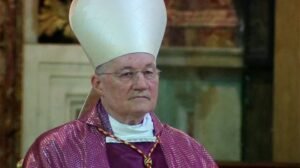
A fifth Canadian cardinal, Marc Ouellet, aged 80, is no longer eligible to vote. A former prefect of the Vatican’s Dicastery for Bishops, Ouellet has also been the subject of past sexual misconduct allegations, which he has denied. The legal complaints were later dismissed.
What Are the Odds?
Despite the technical eligibility of Canadian cardinals, Anderson says global dynamics don’t favor them.
“Most cardinals come from Europe and the Global South,” she said. “Canada has neither the voting bloc nor the political momentum needed.”
In total, 252 cardinals make up the College, though only 138 are voting-age. Of these, 110 were appointed by Pope Francis, meaning the next pope is likely to align with his theological and ideological vision.
The regional breakdown also offers clues. Europe still dominates with 114 cardinals overall, followed by Asia (37), South America (32), Africa (29), North America (28), Central America (8), and Oceania (4).
Who Is a Likely Successor?
While the election is famously unpredictable, a few names are emerging in Vatican circles and on social media.
Topping many shortlists is Cardinal Luis Antonio Tagle of the Philippines. Sometimes referred to as the “Asian Francis,” the 67-year-old Jesuit is known for his progressive views and charisma. He currently ranks first on the “Papability Index”—a crowdsourced predictor on X (formerly Twitter)—which uses algorithmic data to gauge a cardinal’s chances.
In second place is Cardinal Chibly Langlois of Haiti, who gained international recognition for his leadership in the aftermath of the 2010 earthquake. Appointed Haiti’s first-ever cardinal by Pope Francis in 2014, Langlois is viewed as a unifying figure from a region historically underrepresented in papal politics.
The Road Ahead
The next pope will face formidable challenges: navigating doctrinal divides, expanding the Church’s global reach, and addressing the deep wounds caused by decades of abuse scandals. Whoever is elected will not only lead 1.3 billion Catholics but also set the tone for how the Church engages with the 21st century world.
As the world mourns the death of Pope Francis—a reformer known for his humility and advocacy for the marginalized—the conclave’s decision will shape the future of Catholicism for generations to come.

 English
English













































